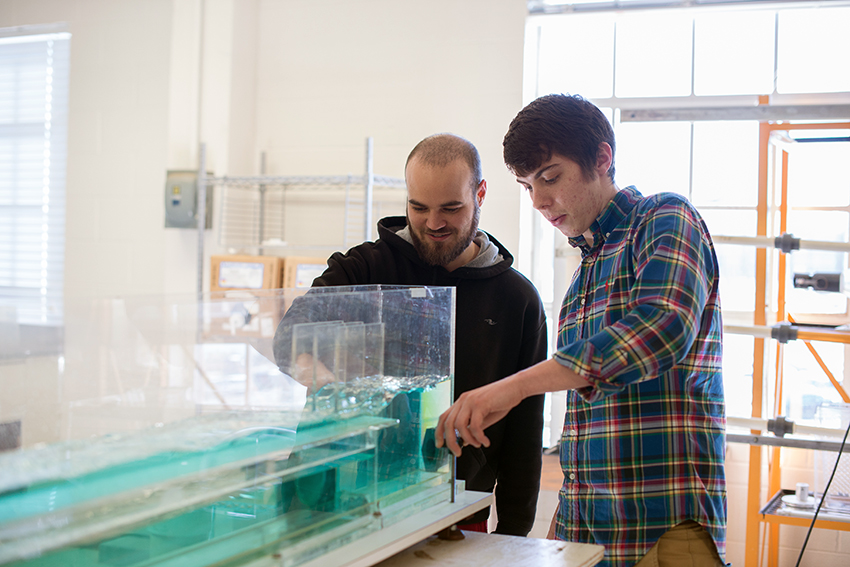Master of Science in Civil and Environmental Engineering
The Master of Science in Civil and Environmental Engineering combines scholarship, research and advanced coursework to offer a comprehensive and competitive master’s degree program to prepare you for advanced projects and opportunities in industry or advanced research in academic institutions. You will receive the strong academic training needed for making significant contributions to solving civil and environmental engineering problems in the 21st-century, and for becoming well-informed, productive members of society dedicated to public service and lifelong learning.
Under the mentorship of highly respected faculty, graduate students develop a research and scholarly profile and a coursework portfolio that is relevant to professional practice and research within one of seven areas of specialization:
-
- Environmental Engineering
- Geotechnical Engineering
- Materials Engineering
- Structural Engineering
- Structural Mechanics
- Transportation Engineering
- Water Resources
The master’s program is offered by the Department of Civil and Environmental Engineering, which is known for the personal attention given by faculty to students in areas of specialization to support their unique academic needs.

Research
As a graduate student in our program, you will have the unique opportunity to engage in groundbreaking research that contributes to the betterment of society and the preservation of our planet. Our faculty members are distinguished experts in their respective fields, with extensive research experience and a passion for innovation.
We foster a collaborative and interdisciplinary research environment, encouraging students to work across traditional boundaries and explore multifaceted challenges. As a graduate student researcher, you will be actively involved in designing and executing experiments, conducting field studies, analyzing data, and publishing your findings in reputable journals and conferences.
Get Involved
Interested in graduate research and scholarship, or student organizations and service? Check out the specific areas of research interests for our faculty members and explore our civil and environmental engineering student organizations and honor societies.
The thesis option for the M.S. in Civil and Environmental Engineering is recommended for students interested in careers in academic or research. It requires a minimum of 31 semester hours of graduate-level coursework and includes one (1) semester hour of Graduate Seminar and a minimum of six (6) hours of thesis completed under the supervision of the graduate advisor (31 hours). An approved thesis, an oral thesis defense (comprehensive exam) and a 3.0 GPA are required for graduation.
An MSCE program of study with non-thesis option requires a minimum of 31 credit hours of graduate course work, as specified in the student’s approved Program of Study. This program is offered in a fully online delivery mode. The program of study shall include 30 semester hours of graduate-level coursework, one (1) semester hour of Graduate Seminar. At least 21 credit hours of graduate coursework must be CEE courses. Non-thesis MSCE students will complete a culminating exam to reflect comprehensive knowledge gained from coursework. Successful completion of the exam is required for graduation. Other departmental requirements may apply.
- Environmental engineering: Biological wastewater treatment and design, urban water quality management, environmental microbiology, bioenergy production through anaerobic processes
- Geotechnical engineering: slope stability analysis, engineering properties of soil, behavior of compacted clay
- Materials engineering: durability, chemistry, and nano/microstructure of cementitious materials, fiber-reinforced concrete, early age behavior of concrete, alternative cementitious materials
- Structural engineering: Earthquake resistant masonry and concrete design, advanced bridge design and analysis, structural health monitoring
- Structural mechanics: non-linear structural analysis, computation algebraic geometry, composite materials, continuum mechanics, finite element analysis
- Transportation systems: Urban travel demand and modeling, transport land use interaction, non-traditional intersections and arterial design, traffic signal systems operations
- Water resources: Computational hydrology and hydraulics, integrated watershed management, flood modeling and simulation, climate and urban impacts on water resources

